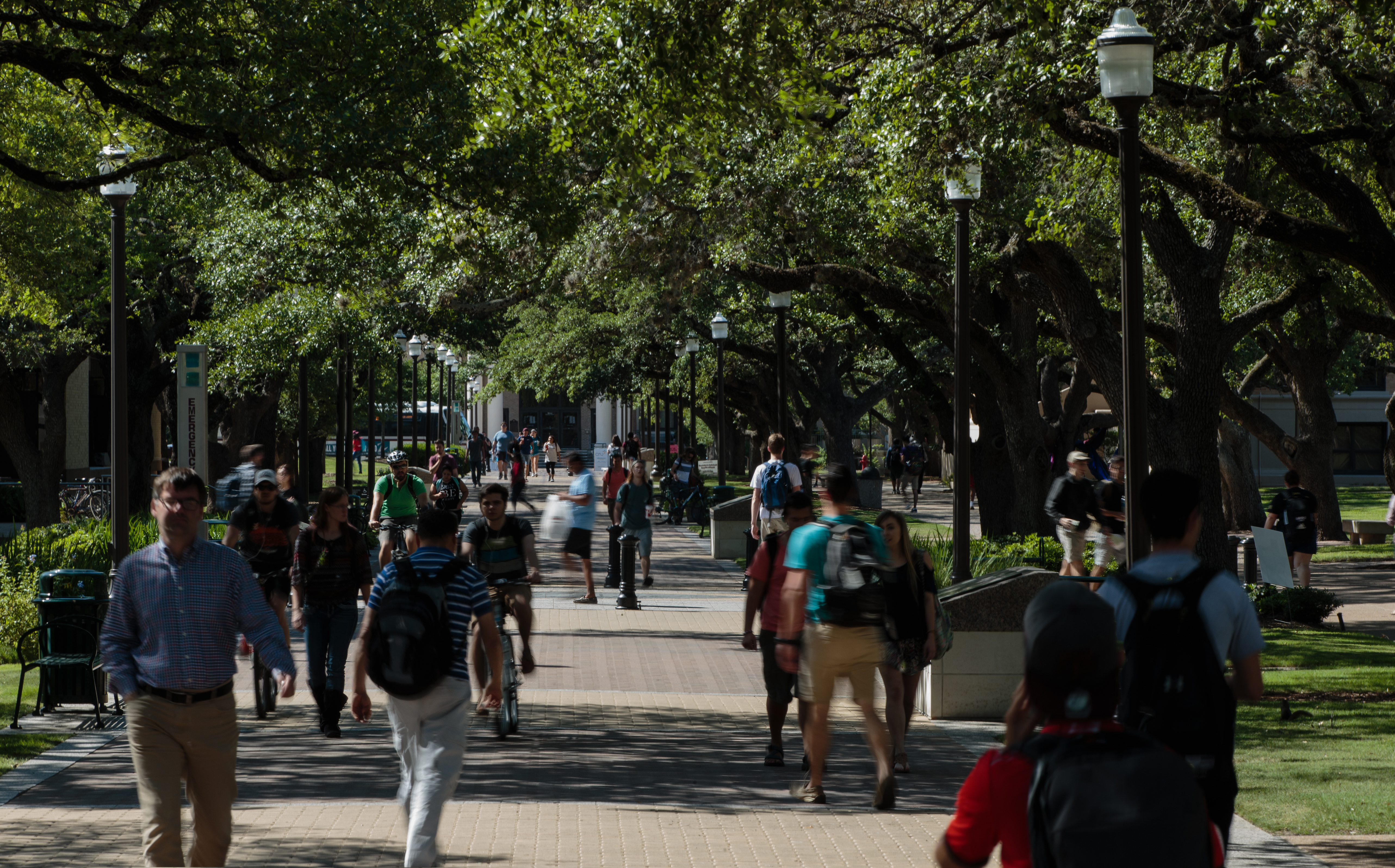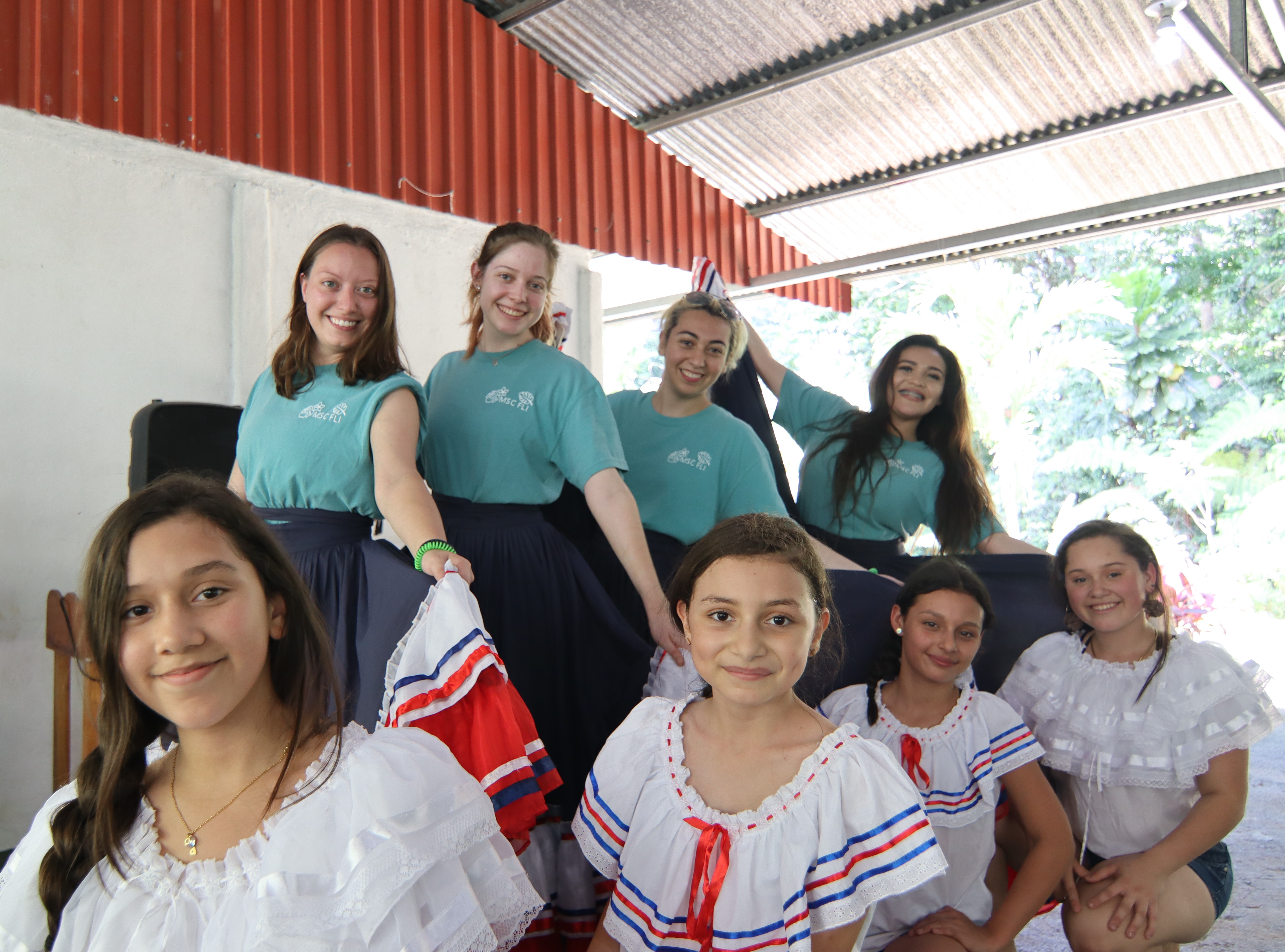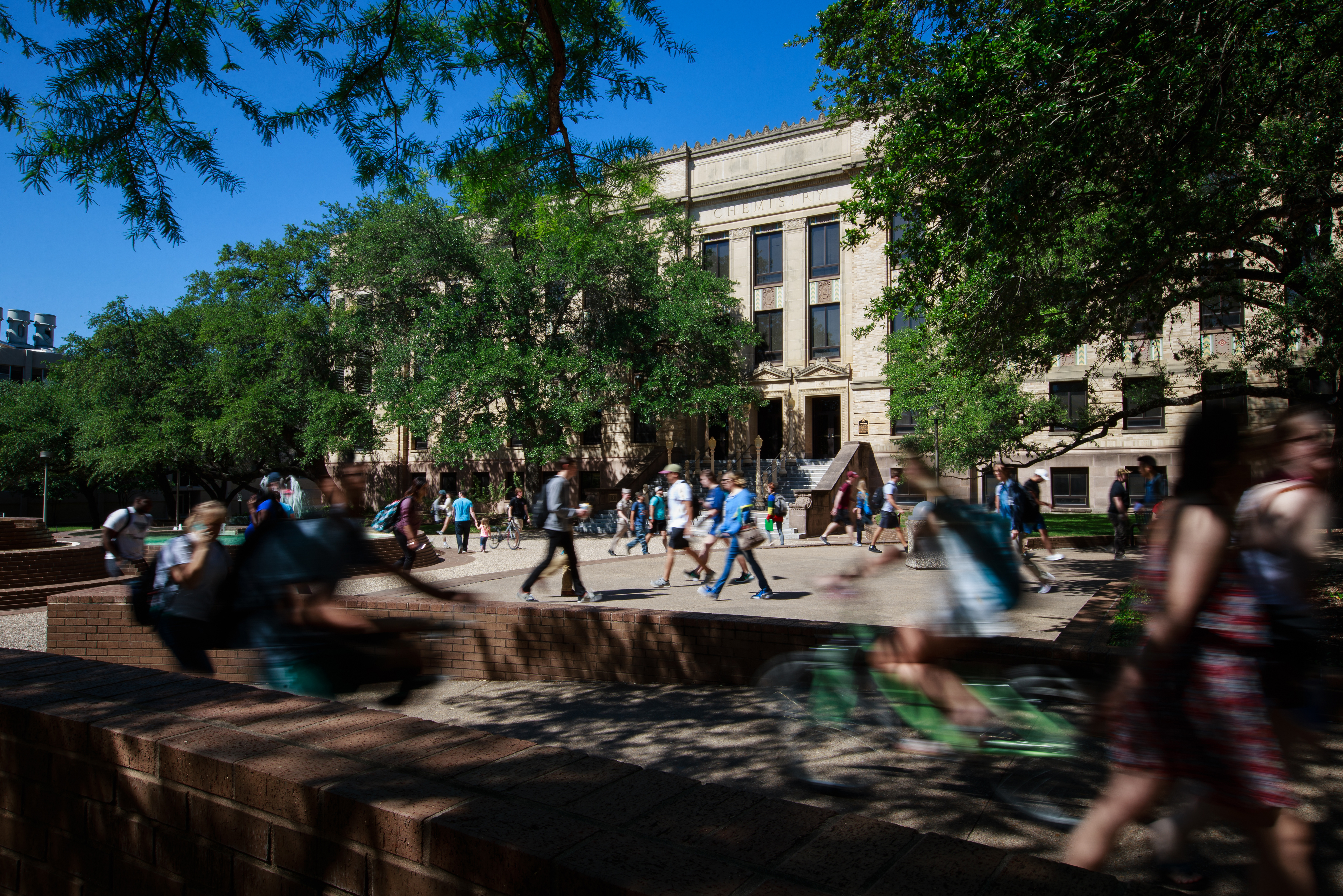Written by Amaris Vázquez Vargas Education Abroad Program Coordinator Texas A&M University
“Abroad for All” is not just a tagline for us in Education Abroad at Texas A&M University. It's a commitment. A commitment that everyone from the advisor to the director is determined to achieve. As the university celebrates its recent designation as a Hispanic Serving Institution, Education Abroad has worked towards significant achievements of our own.
Removing barriers, increasing access, and expanding the geographical footprint of programs have been at the forefront of our efforts. Since the 2009-2010 academic year, study abroad participation by students of color has increased from 29% to 49%. More specifically, participation by students who reported being Hispanic or Latino increased from 15% to 23%.
Our internal committee focused on inclusion, diversity, equity, and access within and around study abroad programming has been at the center of this shift. This team builds connections across campus that include working with the Texas A&M Hispanic Network of former students and the Department of Multicultural Services. These partnerships, among others, have helped provide support to students, enhance transformational learning opportunities, and equip program leaders better.

Exploring Heritage
As participation by Hispanic students has increased, so has the number of students participating in Latin American programs. In 2019-2020, 31% of all students who participated in an Education Abroad program did so in a Latin American country. This increase is significant given that European destinations typically dominate study abroad programs. And it’s most likely that this increase isn't coincidental.
Latinx students seeking to study language, culture, or history tend to participate in programs that will also connect them to their heritage. But many prefer to explore other countries in Latin America to understand better the cultural differences and similarities that may exist. Some also travel to Spain and are interested in learning more about the European influence of Spain in Latin America.
Texas A&M works with a network of third-party providers to make heritage seeker programs available for students. Education Abroad also works with faculty and program leaders to design opportunities to attract students who have ties to specific countries or regions. There is work being done to develop university-sponsored programs for heritage seekers.
I have the pleasure of working with students and supporting them as they determine the best opportunities for them. As a Latina, I think it’s essential to highlight experiences that don’t solely focus on heritage-seeking but also maintain a high level of academic rigor and personal growth. The students we advise have multiple, intersecting identities that may include class, family education, sexual orientation, etc., on top of their race or nationality. All these factors must be considered when choosing an appropriate abroad experience that meets educational, financial, and personal needs.
In any case, going abroad allows students the opportunity to immerse themselves into an environment not known to them until that moment. It enables self-reflection and leads to a greater sense of self-awareness and appreciation of one’s own culture, traditions, and heritage.

Inclusion & Equity
Participating in an international education experience provides evidence-based advantages such as an improved academic profile, developmental growth, and higher starting salaries for graduates. Education Abroad at Texas A&M recognizes the need for this to be an equitable opportunity and, therefore, places a lot of emphasis on reaching historically underrepresented student populations.
Education Abroad’s mission is to provide wide-ranging “access to meaningful, diverse, and inclusive international experiences.” This has led to various outreach and recruitment initiatives that open the doors of possibility. The design of these programs centers around three main themes: support; awareness and understanding; and learning and development. By looking through those lenses, we have identified gaps within our organization and the university as a whole.
Those gaps included first-generation and low-income students. In 2019-2020, first-generation students made up 23% of study abroad participants at Texas A&M, and 24% of participants reported a family income of less than $60,000/year, up from 19.7% in 2009-2010.

Winning initiatives have included:
• Email and web campaigns targeting specific identities.
• The launch of a first-year seminar course focused on diversity and global learning.
• The creation of a crowdfunding campaign that raised money to provide free passports to marginalized students.
In addition, we are developing a diversity, equity, inclusion, and justice certification program to launch in the fall. Texas A&M also dedicates about $1.5 million a year in study abroad scholarships and was recently named a Top 20 Gilman Scholar producer by the U.S. Department of State.

Texas A&M Education Abroad leads the nation as the No. 1 public university for study abroad and has done so since 2014-2015. It has positioned itself as a national and regional leader through participation in, and recognition by, international education organizations. Most recently, Texas A&M was recognized by Diversity Abroad with the Excellence in Diversity & Inclusion in International Education award.
As we emerge from the rubble created by the global pandemic, we have also been given an opportunity to look at how and who we recruit for our study abroad programs. It's not just about returning to pre-COVID-19 numbers but being intentional in how we can offer these opportunities to the broadest possible population of students. Supporting and facilitating the high-impact practice of education abroad is only relevant if it impacts those in most need of its benefits.
Author Bio:
Amaris Vázquez Vargas (she/ella) is a Puerto Rican, queer, cis-gender woman and an Education Abroad program coordinator at Texas A&M University. She co-created a first-year experience course focused on diversity and global learning and serves on various JEDI-focused committees and working groups. Ami has an MA in Higher Education from George Washington University and is starting her Ph.D. at Texas A&M this fall.